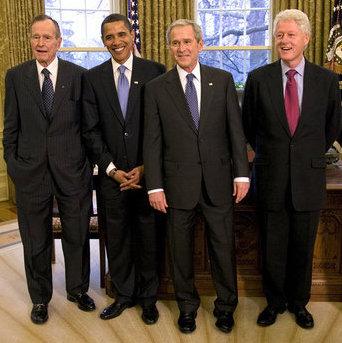Despite COVID-19 being a public health crisis, we have politicized our understanding of the disease. As with so many issues these days, how one interprets inconsistent and incomplete data and how one envisions a plan for moving forward are painted as a binary choice: Democrat or Republican, pro- or anti-Trump. These labels carry a lot of extraneous baggage, and at ACSH, we know this on a visceral level.
Consider this: We have explicitly stated over and over again that we are entirely non-partisan and apolitical. Yet, ACSH has been accused of being pro-Trump and anti-Trump, depending on whatever coronavirus article we happened to publish. For example, when we said that influenza is a bigger public health threat than COVID-19 (which was true at the time), we were accused of "downplaying" the pandemic threat in order to boost Trump. When we said that hydroxychloroquine doesn't help treat COVID-19, we were accused of being anti-Trump.
This is, in a word, insane. But it has become routine in American political discourse. Every person is assumed to have an underlying political loyalty and/or ideological agenda.
How Did We Get Here?
The conservative Fox News commentator Brit Hume likes to say (paraphrased) that President Trump's biggest flaw is that he thinks everything is about him; his critics' biggest flaw is that they agree.
That statement succinctly summarizes what I believe has become a dangerous social pathology, namely, that we as Americans pin our collective hope and hatred on a single person, the President of the United States. This problem precedes Donald Trump, but the coronavirus pandemic has greatly intensified it.
Why do we place so much emphasis on a single individual? There are multiple reasons. The Presidency really has become more powerful over the past few decades, in large part due to a dereliction of duty by Congress. The Founders intended Congress and the Presidency (and the Supreme Court) to be co-equal branches of government, but that is clearly no longer the case. The President has almost exclusive authority in matters of foreign policy, and a vast executive bureaucracy allows the President to unilaterally change domestic policy at a moment's notice without consulting Congress.
Politicians themselves seem to be quite happy with this arrangement. If you're a member of Congress, nothing is your fault. In addition to the President, there are 534 other people to blame. Political candidates and pundits both act as if the President is all-powerful. We pretend that the President -- rather than market forces -- control the economy, unemployment rate, and oil prices. If anything goes wrong, the public blames the President; if anything goes right, the President gladly takes the credit.
Now, add in a dose of extremely toxic hyperpartisanship, the cult of personality, the nationalization of local politics, social media, and high-stakes events such as Supreme Court nominations, and we have a recipe for a nasty social pathology.
Coronavirus Has Worsened Our Social Pathology
The worsening of our social pathology has been put on full display during the COVID-19 pandemic. It has become impossible to have any conversation -- scientific, economic, or otherwise -- in which somebody doesn't ultimately heap praise or scorn on Donald Trump. Just watch cable news, read social media, or skim through the comments section for myriad examples.
(There is a tongue-in-cheek rule known as "Godwin's Law" that states, "[A]s an online discussion grows longer, the probability of a comparison involving Nazis or Hitler approaches 1." Godwin's law should probably be updated to include Trump.)
This is deeply unhealthy for at least three reasons. First, it's simply inaccurate to praise or blame the President -- any President -- for every major or minor historical event. Second, it creates a feeling of helplessness. If a person believes that somebody else is to blame, then it provides little incentive to make meaningful changes in his or her own life. (It's for this reason that conspiracy theories are particularly toxic.) Third, such beliefs leave no room for objective analysis and nuance, which is detrimental to rational, evidence-based discourse.
Where Do We Go From Here?
In the short-term, our social pathology continues to get worse. In the long-term, this is socially unsustainable. Either our country rips apart, or the public somehow comes to its senses. Let's hope and pray for the latter.




